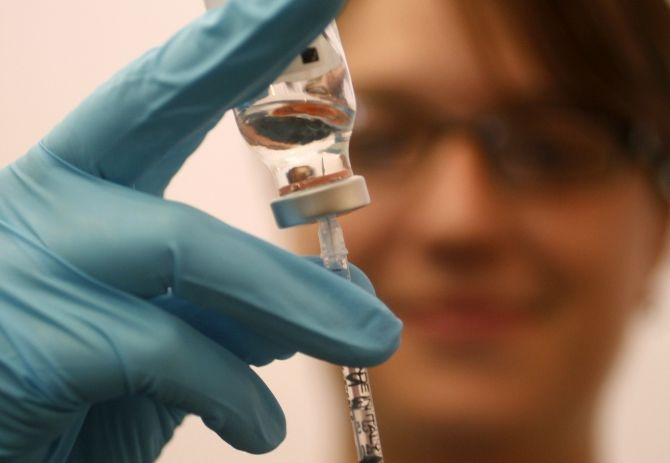Therapeutic HIV Vaccine Shows Promise in Trial

HIV is not the death knell that it once was and, with antiretroviral therapy, many patients are able to have lifespans almost as long as individuals without the illness. However, antiretroviral therapy needs to be taken indefinitely to have its desired effect and it comes with a hefty price tag and a large number of side effects, so doctors and researchers are still on the hunt for a cure. A multi-national team of researchers hailing from France, Spain and the United States may have come that much closer to developing one. In a clinical trial, a therapeutic vaccine was found to show promise in the fight against the disease.
The researchers tested the therapeutic vaccine, a vaccine used to trigger an immune system reaction against an illness already present in the body, in HIV-positive patients over the course of 48 weeks. The virus was inactivated with heat and then injected into the patients. Of the 36 patients in total, 22 patients received the therapeutic vaccine and 11 patients received the control injection.
After 12 weeks in the trial, 12 of the 22 patients who had received the vaccine saw their viral load drop by 90 percent. This allowed patients to forgo multiple medications. After 24 weeks, an additional seven patients saw their viral load drop by 90 percent as well. In the control group, only one patient saw a similar drop over the same time period.
Unfortunately, the efficacy of the vaccine was only temporary. After a year, patients needed to start antiretroviral therapy once more.
"Although we still have not got a functional cure, the results published today open the possibility of achieving an optimal therapeutic vaccine, or a combination of strategies that includes a therapeutic vaccine, and could help to reach that goal," the researchers said in a statement.
There were 34 million people in the world who are infected with HIV in 2011, up from 33.5 million in 2010.
The study was published in the journal Science Translational Medicine.
Published by Medicaldaily.com



























